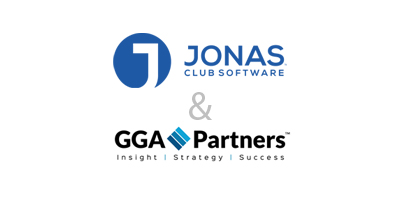Generation Z (Gen Z), representing those born between 1996 and 2010, is quickly graduating from “children of members” to Junior and Young Executive membership categories in many clubs. Aged 10-25, this next generation follows millennials into private club membership and is set to become an important part of a club’s generational mix. Many of today’s key performance indicators (KPIs) focus on a broader vision that reflects a club’s priorities, values and purpose. Clubs who are proactive in addressing the needs and wants of this next generation will be poised to benefit from protection against rising attrition from a more vulnerable generational mix. But how, exactly, should clubs cater to the priorities of Gen Z members and what information will help them to do so?
Clubs who seek to attract and retain Gen Z members will need to both understand the specific needs of this generation and know what data to track to determine whether those needs are being met. Learning about Gen Z, and what differentiates from past generations, will help identify successful strategies to engage a group who is soon set to reach full purchasing power.
The following metrics will assist Boards in making better business decisions related to Generation Z:
Generational Mix
The club’s Generational Mix outlines the percentage of members belonging to each of the generational groups. Traditionally, these generational groups include the Silent Generation (1928 – 1945), Baby Boomers (1946 – 1964), Generation X (1965 – 1980), Millennials (1981 – 1995), and now, Generation Z (1996 – 2010).
A club’s Generational Mix can say a lot about its culture and how it evolves over time. The mix can also reveal age clustering whereby there is insufficient distribution among the generations, making the club more vulnerable to large waves of attrition. Tracking the mix over time can identify historical trends and provide the opportunity to predict the future mix, allowing for the appropriate infrastructure to be implemented to meet the needs of future members.
Boards should regularly monitor and evaluate their club’s generational mix. For example, the MetricsFirst Lifecycle Dashboard identifies generational trends of various segments within club membership.
Diversity Profile
Gen Z are a diverse generation to the extent that they tend to take diversity for granted and have been taught by their Gen-X parents to disdain outright exclusivity. Tracking diversity markers, whether by race, gender, age, marital status, or otherwise, is helpful to understand the profile of your membership and how it is changing over time.
Clubs need to understand who Gen Z’ers are and where their priorities lie. The new generation expects organizations to take a stance on societal issues and are keen observers of how they are behaving in and out of the boardroom. Gen Z will expect governance from a Board that is as diverse as its membership – understanding how diversity, equity and inclusion is not just supported, but encouraged and represented throughout the Club, will be of value to this next generation.
Careful attention should be paid to how this data is collected, tracked, and utilized by clubs and boards. It is vital that appropriate, inclusive language is considered when requesting this information from members and emphasis placed on using the data to create an inclusive environment. External expertise may well be required to determine how best to obtain and safeguard this sensitive data.
Digital Engagement
Born into a world of technology, Gen Z is the first truly digital generation. This cohort expects private clubs to embrace technology as a complement to their overall customer service experience rather than a replacement for it. Clubs must focus on creating experiences for Gen Z’ers who understand and communicate using technologies like social media. This group’s natural use of technology will influence how clubs not only operate but engage. In addition to employing technology within the club environment for efficient ordering, registration, voting, etc., clubs should consider how technology, particularly social media, can be leveraged to drive engagement with existing members and to recruit prospective members.

The Net Promotor Score (NPS) is a valuable metric to track engagement and should be a standard metric employed to measure loyalty, which is important to younger generations. Social media metrics, such as likes, shares, and follows, are also helpful to track, and can be analyzed to determine content the membership finds most engaging. Remember to move beyond simply counting engagement – it is just as important to understand which social platforms members engage with to tailor content to those specific platforms. TikTok content creation is much different than content developed for LinkedIn. Tracking engagement to understand where to focus resources across social platforms contributes to effective management.
Amenity Utilization & Compaction
Gen Z’ers expect flexibility in their work and personal lives, with the ability to work in hybrid-type jobs and environments. Successful clubs will ensure that amenities are available on-demand to meet these needs. Boards should pay careful attention to the long-term planning for capital expenditures and human resources to make sure that the right mix of amenities is available to encourage long-term engagement between Gen Z members and their clubs. Opportunities may arise for utilization of club services and facilities in traditional off-peak windows, providing further incentive for clubs to encourage this next generation to engage with club membership earlier than previous generations have traditionally done so.
Metrics that identify compaction periods, and conversely, periods with excess capacity, will help clubs to take advantage of the flexibility Gen Z’ers bring.
Tracking club activity using member card swipes, digital card scans on mobile apps, or even facial recognition technology can help clubs better understand overall utilization. Combined with program participation (personal training lessons, class bookings, event registrations, etc.) and a valuable picture comes into focus of overall utilization, which can easily be broken down by demographic.
Gen-Z is defined by its prioritization of diversity, equity and inclusion, comfort with (and reliance on) technology, and expectation for on-demand services to meet flexible schedules.
As this rising generation begins to come of age in parallel with the “new-normal” of life post-COVID-19, clubs are faced with the opportunity to evolve to meet the needs of Gen Z. Leveraging data effectively will assist to understand what actions to take to do this. Private clubs contain a wealth of important data, with access to demographic, utilization and engagement metrics that can be very challenging to obtain in a more traditional business environment. The strategies that clubs can implement by analyzing this data more effectively have tremendous potential. Clubs that take advantage of the changing landscape of a post-COVID world to meet the needs of Gen Z are poised to benefit from the diversity this generation brings.
This piece was authored by GGA Director, Liz McDowell CPA, CA, CCM, and Trevor Coughlan, Vice President of Marketing at Jonas Club Software for Boardroom Magazine.



